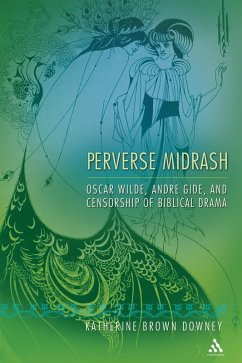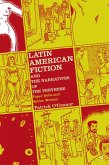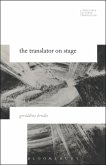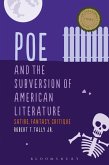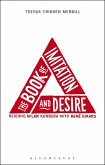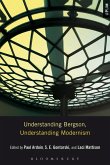Oscar Wilde's Salome and Andre Gide's Saul have been considered critically in the traditional contexts of authorial oeuvre, biography, or "thought." These plays have been treated with embarrassed respect, dealt with only because of the importance of their authors. That Wilde and Gide made use of biblical material seems to discomfit their critics; that they had done so at a time when biblical drama was prohibited has rarely been addressed. Traditional critical treatments seek to smooth over the plays' aberrant qualities. This study takes them seriously as aberrations and investigates Wilde's and Gide's claims that these plays are works of faith, by considering them as participating in the history of biblical drama.
Bitte wählen Sie Ihr Anliegen aus.
Rechnungen
Retourenschein anfordern
Bestellstatus
Storno

